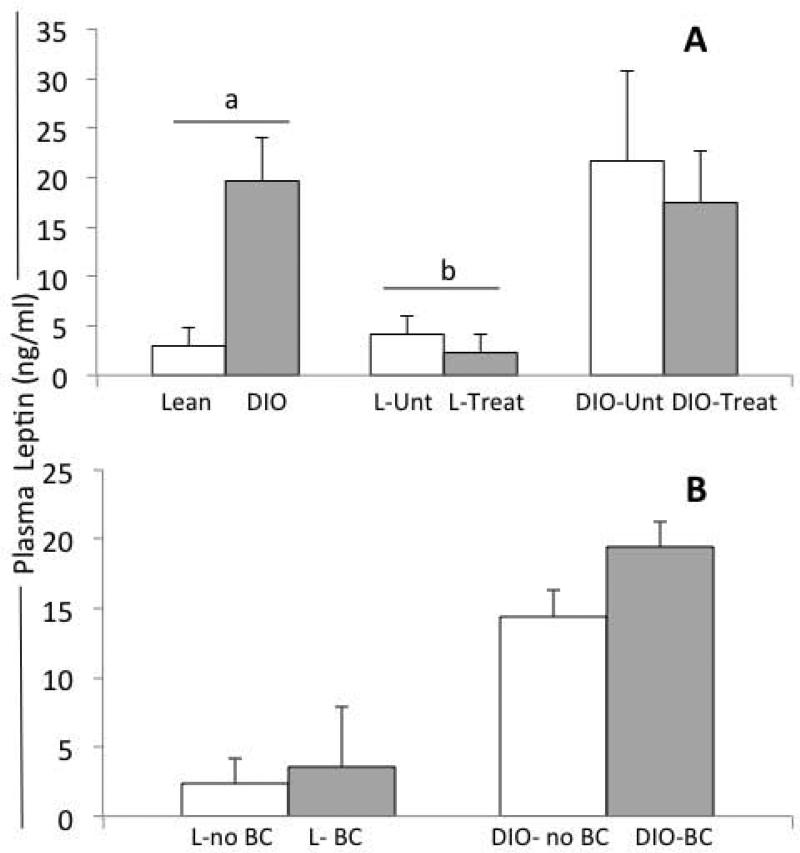Fig 4. Effects of obesity, E0771-derived breast cancer and PEG-LPrA2 treatment on plasma levels of leptin in C57Bl/6J female mice.
Plasma levels of leptin at week 10 in lean (n=20; fed chow diet: 10% Kcal-fat) versus DIO-mice (diet-induced-obesity mice; n=22; fed high-fat diet, 60% Kcal-fat); lean-untreated (L-Unt; n=10) versus Lean-treated (Lean-Treat; n=10) mice and; DIO-untreated (DIO-Unt; n=12) versus DIO-treated (DIO-Treat; n=10) mice (A). Plasma levels of leptin in lean (L) and obese mice (DIO) with tumors (E0771-derived breast cancer; BC) or without breast cancer (no-BC) (B). Pearson Chi2: (a) P<0.00001; plasma levels of leptin in lean versus DIO mice; and (b) P=0.02, plasma levels of leptin in L-Unt versus L-Treat. Concentrations of plasma leptin (ng/ml; mean ± standard error) was determined by ELISA and; results are derived from 3 replicates. Mice were untreated (received no treatment or pegylated scrambled inactive control) or treated with pegylated leptin receptor antagonist 2 (PEG-LPrA2) for 3 weeks.

